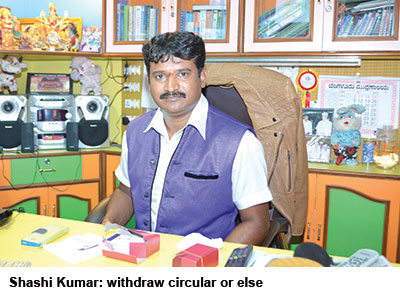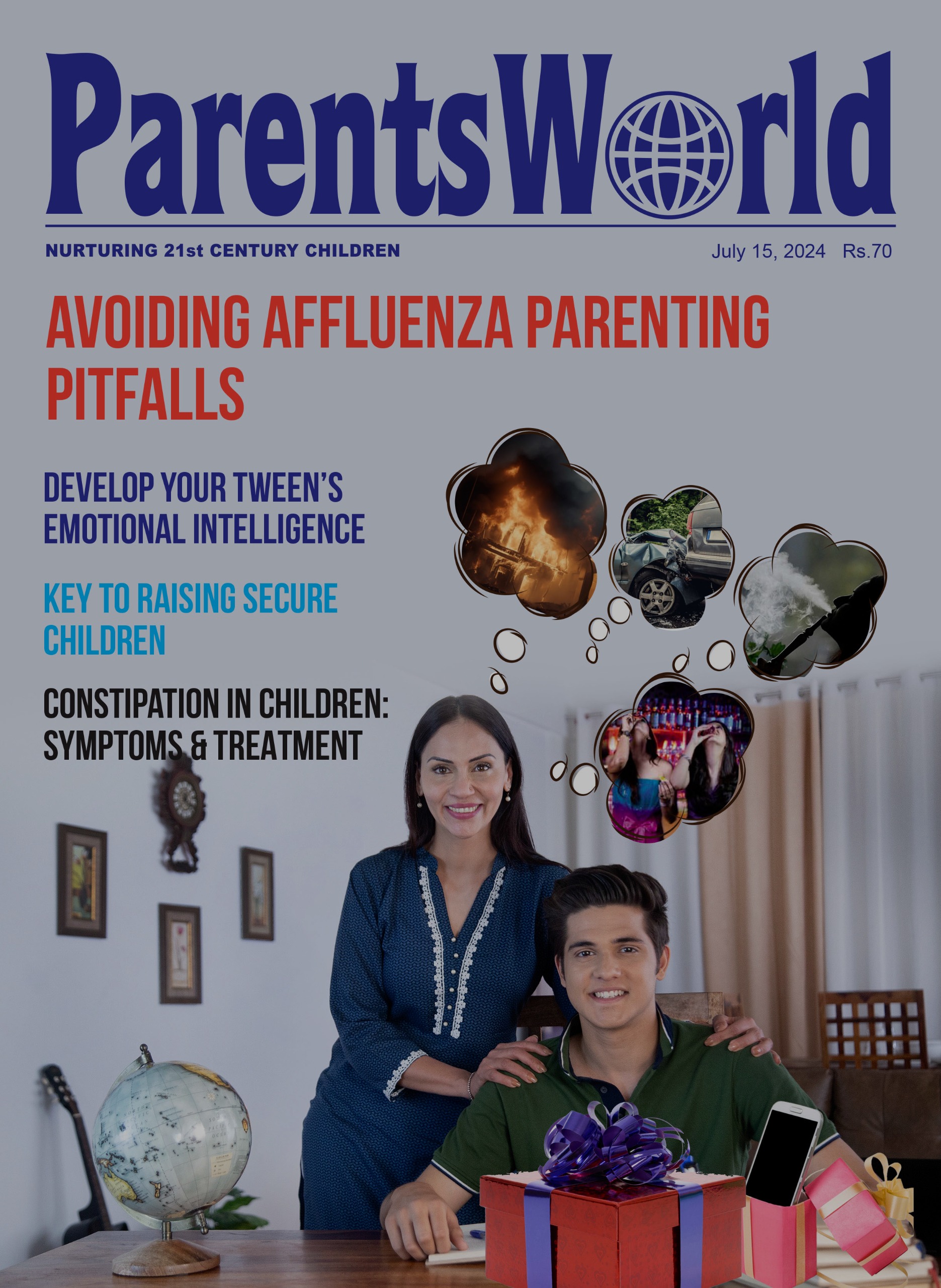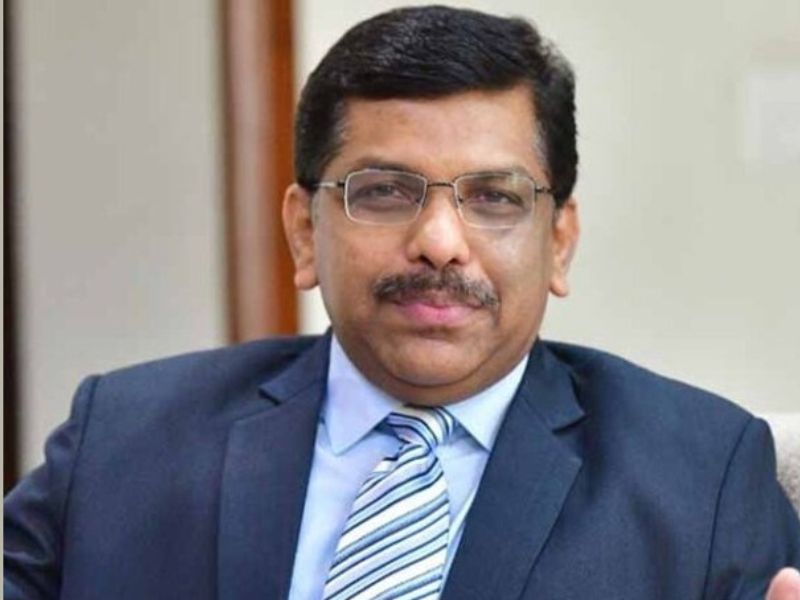 A department of public instruction (DPI) circular of March 30 mandating all 20,581 private unaided schools in Karnataka (pop. 60 million) to pay government prescribed salaries to teachers and administrative staff, has caused much hand-wringing and despair within their managements. According to the circular, all private schools — including the state’s estimated 14,000 private budget schools (PBS) which levy arguably lower tuition fees than private schools worldwide — are obliged to pay a minimum Rs.25,800 per month to primary school teachers, Rs.33,450 to high school teachers Rs.27,650 and Rs.21,400 to first and second division clerks respectively, and Rs.17,000 for cleaning and maintenance employees.
A department of public instruction (DPI) circular of March 30 mandating all 20,581 private unaided schools in Karnataka (pop. 60 million) to pay government prescribed salaries to teachers and administrative staff, has caused much hand-wringing and despair within their managements. According to the circular, all private schools — including the state’s estimated 14,000 private budget schools (PBS) which levy arguably lower tuition fees than private schools worldwide — are obliged to pay a minimum Rs.25,800 per month to primary school teachers, Rs.33,450 to high school teachers Rs.27,650 and Rs.21,400 to first and second division clerks respectively, and Rs.17,000 for cleaning and maintenance employees.
This is not the first time the state government has prescribed minimum salaries for private school teachers and staff. In 2006, DPI ordered private schools to accord their teachers pay parity with teachers in government schools. However, the directive was ignored by the state’s education ministry officials and private schools. Almost a decade later, DPI directed private schools to disclose remuneration details of their teachers to the department which supervises and regulates primary-secondary education statewide. This directive was also ignored by private schools, many of which have attracted sharp criticism for under-paying teachers, often taking back part of their cheque salaries by way of cash.
Top-ranked CBSE, CISCE and high-end international schools affiliated with offshore examination boards such as Cambridge International (UK) and IB (Geneva) tend to pay their teachers higher than the prescribed salaries because they demand — and get — high tuition fees. In international schools, tuition fees are as high as Rs.8 lakh per year for day scholars. Conversely, the state’s 14,000 private budget schools provide professed English-medium education to children of low-income households at rock-bottom tuition fees of Rs.250-1,000 per month. For the latter adhering to the DPI’s minimum salaries directive is out of the question.
Therefore, private school associations — including the Karnataka Associated Managements of Primary and Secondary Schools (KAMS), which has a membership of 4,000 mainly PBS schools, and the more upscale Managements of Independent CBSE Schools Association — have given notice of sharp tuition fee increases if the government directive is enforced.
However, the situation is complicated further by an amendment made in 2018 to the Karnataka Education Institutions Act, 1983 which proscribes private school managements from raising tuition fees by more than 15 percent per year. According to D. Shashi Kumar, general secretary of KAMS, tuition fees of PBS will need to be increased by 100-200 percent if the DPI circular of March 30 is enforced.
“We are caught between the devil and the deep sea. We have informed DPI of our inability to comply with this directive. If it’s not withdrawn immediately before start of the new academic year in June, we will have to petition the high court for a stay order. We are confident we will get a stay order and the DPI directive will be struck down because in the landmark T.M.A. Pai Foundation Case (2002), the Supreme Court permitted education institutions to administer themselves and make reasonable surpluses for re-investment,” says Shashi Kumar.
However, DPI spokespersons are adamant that private school teachers should get a fair deal. “It’s the government’s duty to ensure that teachers in public and private schools are adequately paid to make teaching a career of choice for best graduates. Pay parity between public and private school teachers has been ordered by the legislative assembly through the Karnataka Education Institutions Act, 1983. Therefore, we are obliged to enforce it if we receive complaints of discrimination from private school teachers,” says S. Jayakumar, director of primary education in DPI.
In this connection, it’s important to bear in mind that private schools which are overwhelmingly preferred by the middle class, and PBS which cater to the aspirational lower middle class, serve a useful public purpose. They are a market response to dysfunctional government schools, defined by crumbling infrastructure, English teaching aversion, multi-grade classrooms and negligible learning outcomes as graphically testified by the Annual Status of Education Reports of the Pratham Education Foundation.
In the circumstances when the state government’s March 30 directive is challenged in court — as is inevitable — one hopes their lordships of the higher judiciary will elaborate the T.M.A. Pai Foundation Case judgement and clear the confusion on the issues of self-administration and reasonable tuition fees once and for all.
Sruthy Susan Ullas (Bangalore)
























